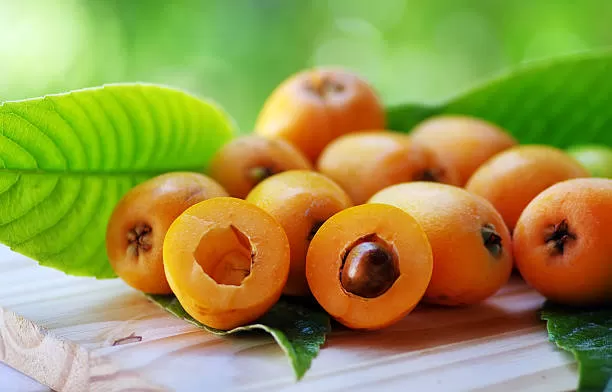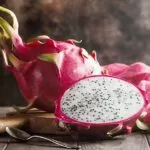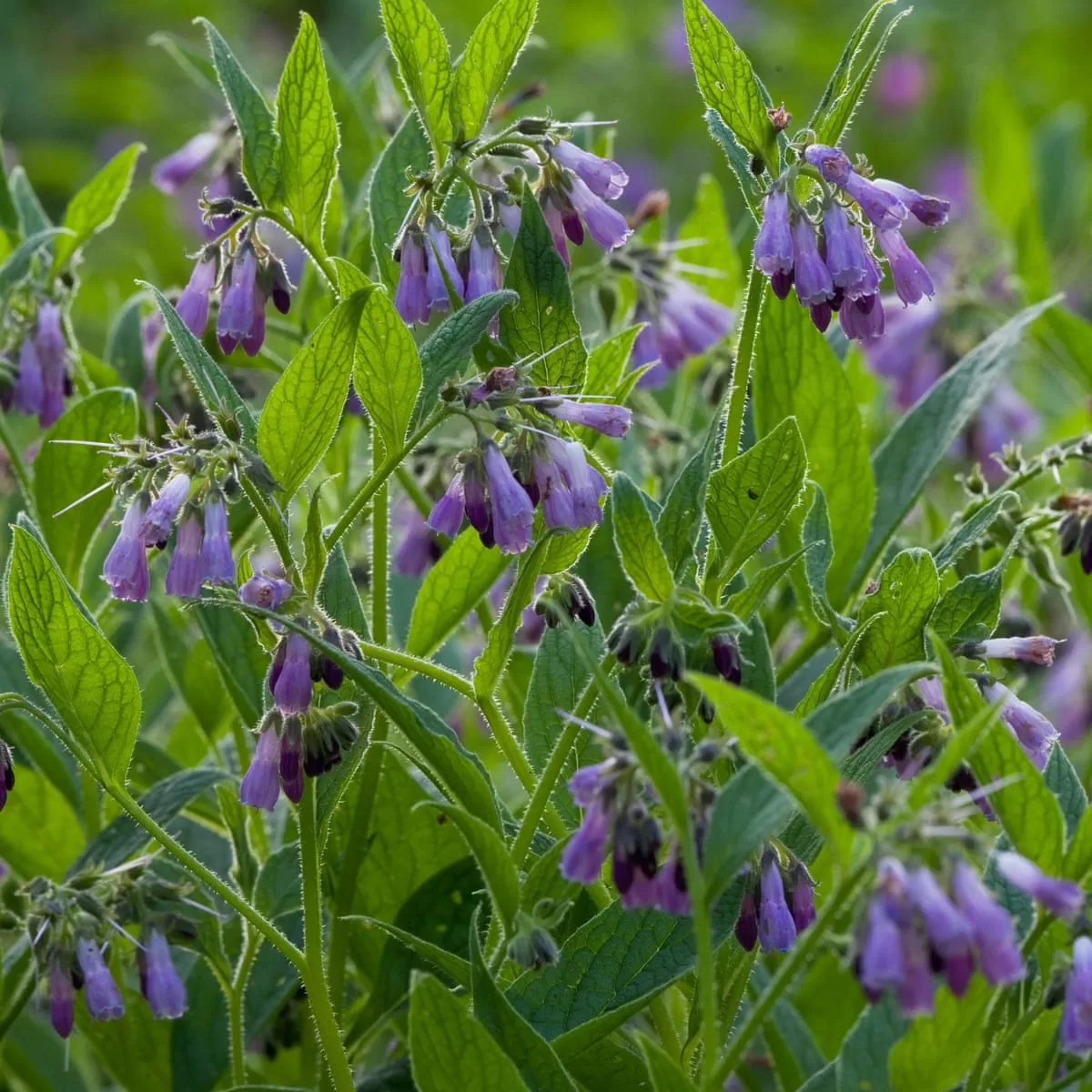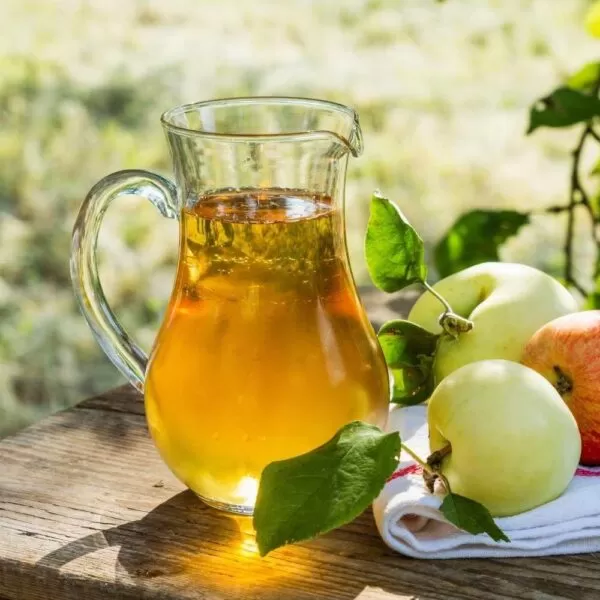LOQUAT FRUIT AND ITS BENEFITS
There are so many benefits of loquat fruit, and loquat which has another name as Japanese Meddler or Japanese loquat is a subtropical tree of Rosaceae family, grown for its juicy fruit and for its esthetic and ornamental significance. An anti-diabetic food nurtured for its foliage and edible fruit is native to Central Eastern China.
Some writers have said it actually originated in Southern China. Whichever region of China it originated from, the fact still remains it all started in China. This beautiful plant came into Japan 1,000 years ago and it is the same country where they developed it horticulturally and valued it highly.
Some of its superior Japanese varieties entered into Europe, the Mediterranean and a few other parts of the globe such as the hot regions of the American continent, for example the states of California and Florida.
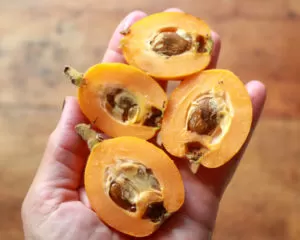
According to George D. Pamplona-Roger M.D in his “Encyclopedia of Foods and Their Healing Power”, per 100g of raw edible portion of loquat consists of the following:-
- Energy
- Protein
- Carbohydrates
- Fibre
- Vitamins
- Niacin
- Folate
- Calcium
- Phosphorus
- Magnesium
- Iron
- Potassium
- Zinc
- Total fat/saturated fat
- Sodium
Loquat Percentage Composition
| Nutrients | Percentage (%) |
| Fibre | 1.70 |
| Mineral | 0.500 |
| Carbohydrate | 10.4 |
| Fat | 0.200 |
| Protein | 0.430 |
| Water | 86.7 |
Many have noticed that a few get a little disappointed when they break open and find that half of its volume is seeds, but this opinion quickly changes immediately they taste the fruit.
Properties and Indications of Loquat
This is where you would get most the benefits of loquat fruit. The loquat has a high sugar content, acid and pectin content. This is one of the reasons it is recommended to eat loquat when it is ripe because if they are not, they are very acidic.
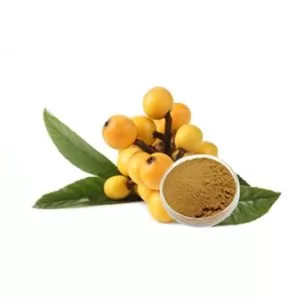
The sugars make 10.4% of its edible portion. Their protein and fat content is almost negligible (i.e. 0.2% and 0.4% respectively). Vitamin A is in abundance, B complex, Vitamin C and E are also present but in small amount.
Loquat contains a good amount of calcium, iron and magnesium with potassium surpassing all other minerals. Loquat are rich in tannins (astringent) about 2.5% and other aromatic substances (triterpenic) which enable them possess their anti-diabetic properties.
Loquat: Preparation and Uses
- Loquat must be ripe and this is the best way to eat it else one would get the acidic aspect of this fruit since it’s not ripe.
- For compotes and Jams; it makes them lose most of their properties when prepared this way. Although, this is the only way to eat loquat apart from the times of spring months.
- With some amounts of toasted bread or crackers, eat 1 to 2 kilos of loquat a day as the main food for 2 days or 3 days.
- The loquat can be used in smoothies or juices. In Ecuador, it is used for “batidos” and they combine it with milk, ice or other fruits.
- The fruits are used to make jelly and chutney.
- Loquat are commonly used as a natural sweetener for food.
- Set to eat it fresh? Have the seeds removed, because it is slightly poisonous.
- Loquat’s flowers are used to make perfume especially in Europe.
- The leaves when dried and powdered, are used to treat diarrhea, depression.
Health Benefits of Loquat Fruit
This benefits of loquat fruit is quite enormous and according to webmd.com, studies have shown that loquat leaf extract can help alleviate and control both type 1 and type 2 diabetes and this is so since loquat can lower blood sugar and bring up insulin levels.
Since flavonoids and carotenoids are found in loquat and act as antioxidants, they help reduce the risk of complicated diseases such as cancer and heart diseases.
A study carried at Autonomous University of Mexico proved that the loquat’s anti-diabetic effect has been demonstrated in human. Researches have shown that loquat extracts reduce the level of sugar in the urine of diabetic rats.
Therefore, it is recommended for cases of diabetes. “The fact that it contains sugar does not affect their appropriateness for those suffering from this disease” as stated by Dr. George.
And as for the liver disorders, it gives good results in cases of chronic liver disease especially in the springtime. This treatment may be repeated every two or three weeks.

In the case of enlargement of the liver, a loquat treatment helps decongests the liver and reduces its volume. It also reduces accumulation of fluid in the abdominal cavity. Loquat provides water and brings back mineral salts. They are highly recommended as a liquid diet that are necessary when cases of infectious diarrhea emanates. It is also good as first solid food after fasting.
When cases of kidney disorder arises, the loquat is very diuretic. Therefore, it is recommended in cases of gout, excess uric acid, and kidney stones. The diuretic effect of loquat increases urine production and helps facilitate elimination of uric sediments through the kidneys.
Lastly, among the benefits of loquat fruit, eating loquat in the spring help cure and prevent colds.
Find out about the following the medicinal Plants:
Dandelion
Java Tea

A graduate of Computer Science and Information Management Technology. Diploma – Caregiving, Certificates – Dementia and Diabetes Awareness and Management. A researcher, blogger, songwriter, singer and acoustic guitarist. Born in an environment where natural talents such as healing are imparted at our natural birth. This natural talents of healing is the result of our genetic inheritance and the training from family environment.











